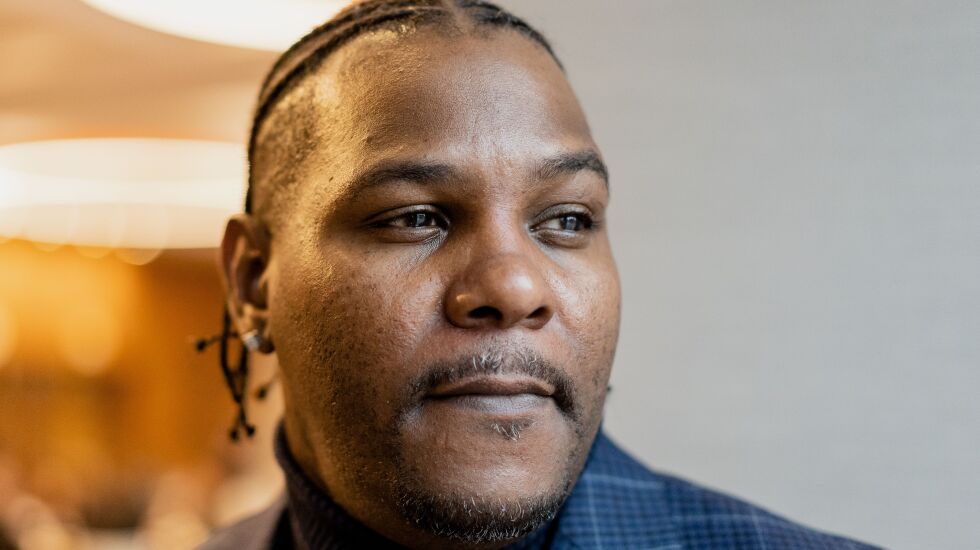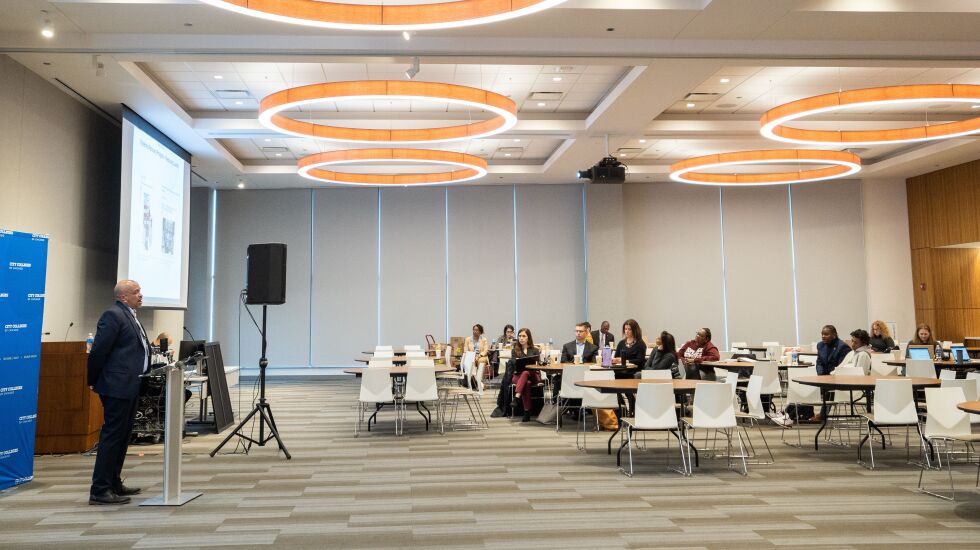
After 1-year-old A-mara Hall was shot last month, many people sprung into action — first responders, surgeons and, finally, violence recovery specialists, who help victims of violence and their families.
Michael Johnson, working in the University of Chicago Medicine’s Violence Recovery Program, was there to console the family of A-mara, who was shot Feb. 19, while in a car northbound on I-57. Her father, Nasir Hall, 19, and William Smith, 13, also were shot, and pronounced dead at the scene.
And when A-mara died later, at the hospital, that meant Johnson had the awful job of showing them her body.
Johnson, a South Side native, said while that experience and others aspects of his job can be traumatic, he’s there to help.
That may be why a few days later, he was attending a course offering help for caregivers like him — as well as those who care for first responders, veterans and victims of trauma.
“The more resources we have in this fight the more we can gain,” said Johnson, 43, speaking outside a lecture hall at Malcolm X College on the Near West Side.
The two-day course late last month was a preview of a new program City Colleges of Chicago will launch this summer at Malcolm X.
Students enrolled in the four-week Chicago Caregivers Course will learn how to take better care of themselves when handling such emotionally-stressful situations and practical aspects of the job, such as moving patients, wound care and finding community help.

The class will be open to about 25 students, who can apply through the college’s continuing education program. It will be free thanks to funding from the Elizabeth Dole and Gary Sinise foundations.
The program was designed for families of first responders and veterans, but Darryl Williams, City College’s vice chancellor of enrollment, encouraged any caregiver to apply, given the prevalence of traumatic injuries around the city.
“When their loved one is impacted by one of these things, they’re in that role now,” Williams said. “A lot of the time we focus on the front end, the incident, the event, but not only is that person who suffered the injury impacted, but their family, their workplace is too.”
About 130 people attended the two-day preview in person and online. The program included everything from lectures from Franklin Cosey-Gay, director of the UChicago recovery program, who gave a lecture the lasting damage the Chicago Race Riot of 1919 has inflicted on Black Chicagoans, to instruction in how to properly move a patient from a wheelchair to a bed or vice-versa.

Terrell Odom, director of the Office for Military-Affiliated Communities for the University of Chicago, said the program was vital for the caregivers who wind up doing the work when a victim leaves the hospital.
“We have to get a better handle on how we support the people taking care of them,” said Odom, who helped design the program. “If they have no type of experience moving patients or understanding why they have to take their medication, if they’re not prepared for that or have that awareness then it’s going to be more difficult.”
Vania Doss, a breast cancer survivor, wanted to attend the conference after seeing how her experience with the life-threatening disease impacted her daughter.
“That care team was focused on me but that care team wasn’t really focused on my daughter,” said Doss, 53.

Five years cancer-free, the Far Southwest Side resident still think about how unprepared her daughter was and how her family could be ready next time.
She plans to sign up for the summer course and hopes other Chicagoans who care deeply about their families will, too.
“Chicago is more than this amalgamation of violence,” she said.
Michael Loria is a staff reporter at the Chicago Sun-Times via Report for America, a not-for-profit journalism program that aims to bolster the paper’s coverage of communities on the South Side and West Side.







